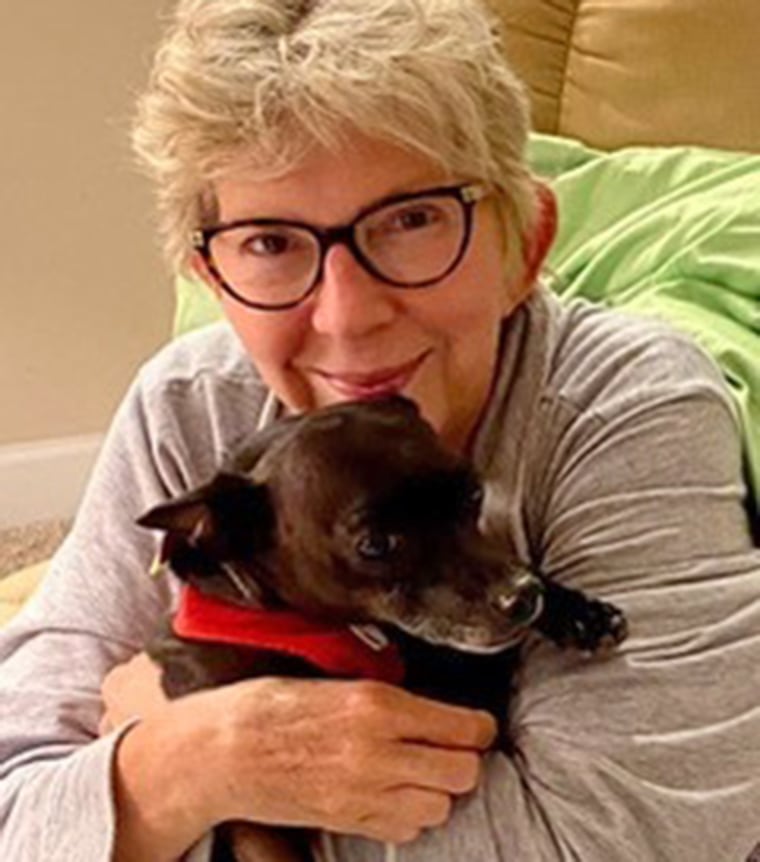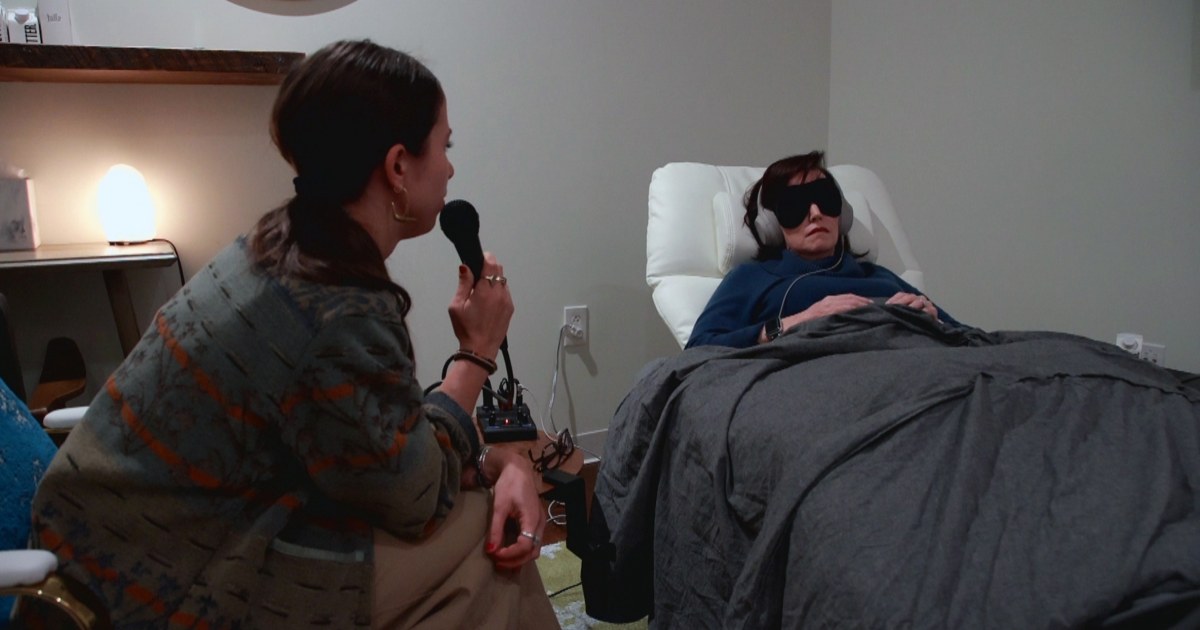Inside Field Trip Health’s New York City clinic, the vibe is less doctor’s office, more laid-back spa.
Tucked away on the 11th floor of a nondescript building, you can barely hear the clamor of the busy streets. Instead, this ketamine clinic feels like an oasis of zen, filled with twinkling lights, lush greenery, and comfy meditation pillows.
That vibe is part of what drew 51-year-old Chere Scythes back on a Thursday night for another ketamine treatment.
“Some of my friends and colleagues had tried ketamine and other types of psychedelic treatments,” Scythes said. “And talking to them, the stories were hard to believe. But these are people I’ve known for 20 years and they seemed like different people. They had a big change.»
Scythes said she first sought ketamine therapy last winter, when she realized that a series of traumatic events, including the death of her mother from alcohol abuse, a divorce and, most recently, the loss of her best friend, they were taking their toll. Over the years, she said, she had tried antidepressants, but they didn’t work for her. Meditation and therapy helped but didn’t do enough.
“After some time off from work and meditating a lot, I realized that I had deep sadness and anxiety in my chest,” he said.
Ketamine is a hallucinogen that has been approved by the Food and Drug Administration as an anesthetic for decades, but is also used illegally as a party drug. In recent years, growing research has found that the drug also works for treatment-resistant depression in some people, leading to the FDA to approve a version called esketamine, or Spravato, in 2019. It’s an inhaled version that must be administered in a doctor’s office and is approved only for people for whom other treatments have failed.
But in recent years, even before Spravato’s approval, a new industry has sprung up: ketamine clinics, offering the drug off-label as an infusion or injection for a wide variety of mental health problems. «Off-label» use means that the drug has not been specifically approved for those conditions.
At Field Trip, a national chain of clinics that has been offering ketamine-assisted psychotherapy for various mental health conditions since 2019, patients first undergo an evaluation to see if they qualify for treatment. If so, patients are given ketamine injections while resting with eye masks while doctors guide them through guided meditation. They also meet with therapists before and after their «trips.»
“Patients say, ‘This changed my life,’” said Mike Dow, a psychotherapist at a Field Trip clinic in Los Angeles.
It is not clear how precisely ketamine works in the brain. Dow said she believes it can increase feel-good chemicals, similar to traditional antidepressants, as well as reduce inflammation and form new neural pathways that are associated with the ability to create new habits and behaviors.
People also have psychedelic experiences that can feel spiritual, which in itself can improve your mood, Dow said.
But as the number of new ketamine clinics skyrockets, with centers springing up across the country, some doctors worry that it’s an unregulated industry that’s ripe for trouble.
Because the drug is FDA-approved, any doctor can prescribe it off-label. The clinics are not federally regulated, but are subject to the same state laws as other walk-in medical clinics.
“The concern with the emergence of these clinics is that people are receiving treatments that have not been well-tested, well-studied, or do not follow any guidelines,” said Dr. Smita Das, an associate professor at the University of California School of Medicine. Stanford and president. of the American Psychiatric Association Council on Addiction Psychiatry. “My concern is that people who need treatment will spend their money and energy in these ketamine clinics that are not well proven.”
Treatments can be expensive, $400 to $800 per session, on average, said Kathryn Walker, chief executive of Revitalist, a chain of clinics that offer ketamine infusions, and are not covered by insurance.
There can also be side effects, including changes in mood and blood pressure, as well as nausea and drowsiness.
Das and Dow say they are also concerned that some clinics may offer the drug without supervision, which is especially concerning if a patient has a «bad trip.»
Only a few small studies have looked at its benefits for other mental health conditions beyond treatment-resistant depression, and the American Psychiatric Association does not provide specific guidelines for its use.
«People can rarely experience paranoia or suicidal ideation,» Das said. “And many of these clinics don’t have mental health professionals. When those mental health issues arise, they may not be equipped to respond appropriately.»
Ketamine is also not a panacea. Not everyone responds to treatment, and it can stop working in some people, said Dr. Subhdeep Virk, director of the Treatment-Resistant Depression Program at The Ohio State University Wexner Medical Center.
«It’s very hard to predict who’s going to respond and how long it’s going to last,» said Virk, who has been treating patients with ketamine since 2018. He added that it’s also unclear whether the drug can help conditions other than treatment-resistant depression. . .
Lynette Ebberts, 66, said that for her, ketamine was a lifesaver. For nearly 40 years, she said, she tried dozens of combinations of antidepressants, electroconvulsive therapy and other treatments for her severe depression, but nothing worked.

In 2016, before most people had even heard of ketamine for depression, her therapist recommended a clinic near where she lived in Raleigh, North Carolina.
“I said, ‘Yeah, when and where?’” he said. “I was so desperate to feel better. I thought trying something was better than trying nothing and ending up taking my own life.»
Ebberts said each 45-minute infusion felt like a dream, seeing vibrant colors and shapes. After undergoing three treatments in one week, he said, something began to change.
“I started to feel like I could get out of bed,” she said. “That deep, dark depressive cloud began to lift.”
In combination with his antidepressants, he has continued ketamine treatments and now receives one every five weeks.
Unlike Ebberts, Scythes does not return to the clinic on a regular basis.
She vividly remembers her first treatment. She saw herself as a little girl, playing in the woods that she loved as a child, and then she saw her mother, who passed away almost 20 years ago.
“I told her how much I loved her and how much I missed her, and I felt this unconditional love for her that I couldn’t feel when she was alive,” he said. «Once she was done, that deep sadness that was in my body for so long just disappeared.»

